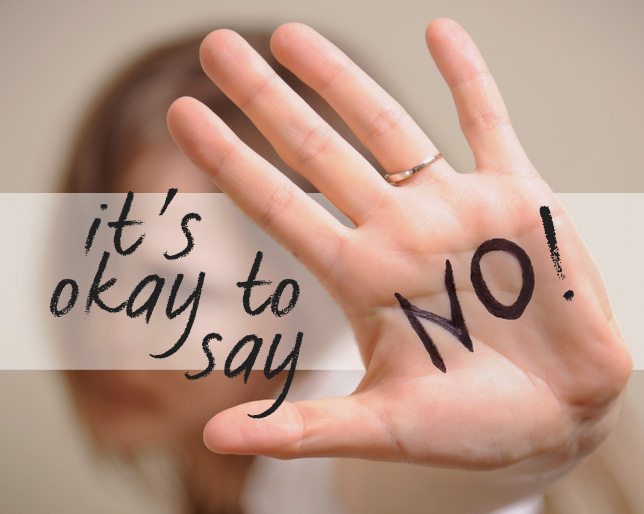Lorelie Rozzano is a guest blogger for Vertava Health.
No Means I Love You – Setting boundaries with your addicted loved one.
The phone rings, and you feel sick. There’s a part of you that wants to ignore the ringing phone, but the other part, the part that wins every time, runs to pick it up. Hoping this isn’t going to be yet another call for help, you listen for the newest crisis to unfold. You remind your son/daughter/loved one of your last conversation with them. The one that went something like this – Do you hear me? This is the last time I’m going to give you (fill in the blank) so don’t ask me for it, again! Unfortunately, again has arrived – again. So what do you do? You don’t want to enable your addict, but you don’t want to see them out on the streets, either. As you hang up the phone, you’re exhausted. You feel hopeless. You just did, what you said you wouldn’t do. Between a rock and a hard place, you gave in. You pray that maybe this time, things will be different. But you don’t hold out a lot of hope for it. You’ve helped them in the past and wonder, did they learn anything from it? You might be surprised at the answer to this.
When you enable an addict, they do learn:
They learn it doesn’t matter if they mess up, because you will fix it. They learn no, is a slow yes. They learn how to wear you down. They learn to become masters at the art of manipulation. They learn it’s easier to call you to fix it, than to fix it, them-self. They learn to be dependent on you, remaining forever, a child. They learn to expect you, to believe their lies. They learn to believe them, too. They learn that getting money from you is easier than keeping a job. They learn that abusive behaviour has its rewards. They learn to justify everything, because nothing is EVER their fault. They learn that you make excuses for them, too. They learn helplessness, dependency and cunning. They learn to expect you to pay their rent, food, bills and even, child support. They learn they’re entitled to your hard earnings. They learn how to push your buttons and when you explode, you feel guilty and give in. They learn you will do anything in your power to help them, even, if it’s making you sick. They learn that you will ask them to attend meetings, but won’t go to one, yourself.
Addicted individuals are highly intelligent. However, many do not know the meaning of no.
When there’s addiction in the family, there is much you need to know. Education, support and professional help are key for both the addicted individual and their family members. Learning how to stay abstinent is the goal for every addict in early recovery. Learning how to say no and set healthy boundaries, is the goal for their family. When you enable the addict, you do them the worst possible disservice. You cripple them emotionally, psychologically and spiritually. They don’t learn to mature or to become responsible for their actions. Addiction is a progressive illness, not only for the addict, but for the enabler. If you want to change, it’s important to understand why you enable, and what you’re getting from it.
A good start to setting a boundary, is learning to hit the pause button.
The next time the phone rings, pick it up and say, I’m sorry I can’t help you right now. I’m not confident I’m making the right decision for either of us. Let your addicted family member know you’re reaching out for help and you love them. Tell them you will do whatever you can to support their recovery, but you’re not going to enable their addiction. Assure your addicted loved one, you will get back to them. Then hang up the phone and call the number below, or reach out to a 12 step group. With support and help, you will find a healthier solution. Boundaries are meant to be flexible. A boundary is not a wall, but rather, a bridge. It defines where you stop and the other person, starts. A person with poor or no boundaries, will allow others to treat them inappropriately.
As you embrace change, be prepared to answer some hard questions. Ask yourself: What role do I play in my loved ones addiction? Then do everything in your power, to change it.
It’s important to live with integrity. You can’t recover, without it. When you understand that addiction is a family disease and not a singular illness, you’re on the right track. Saying no doesn’t mean you’re mad at your addicted loved one, or that you don’t love them. In fact, it’s just the opposite. Saying no, means I love you. You want to have a relationship with them, but you need to learn how to do that, in a way that promotes health, and not disease. Supporting your addicted loved one while maintaining healthy boundaries, is a win-win, for everyone. If you or someone you know needs help, please call this confidential support line for assistance. 844-470-0410.


